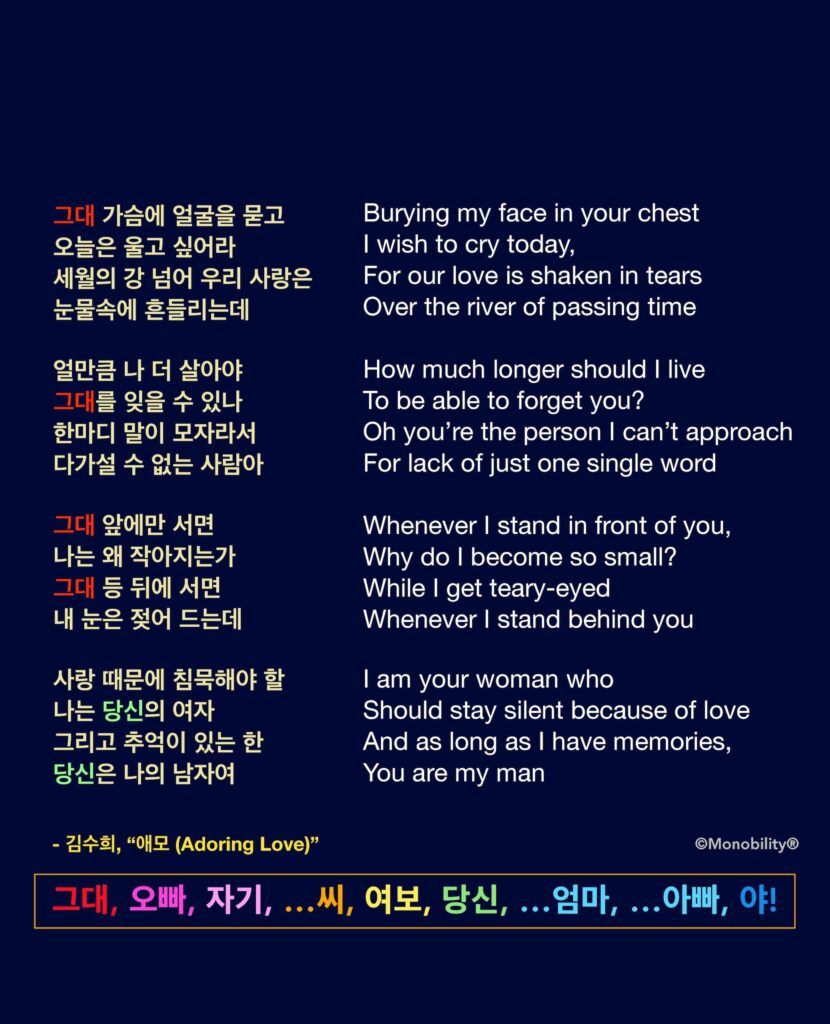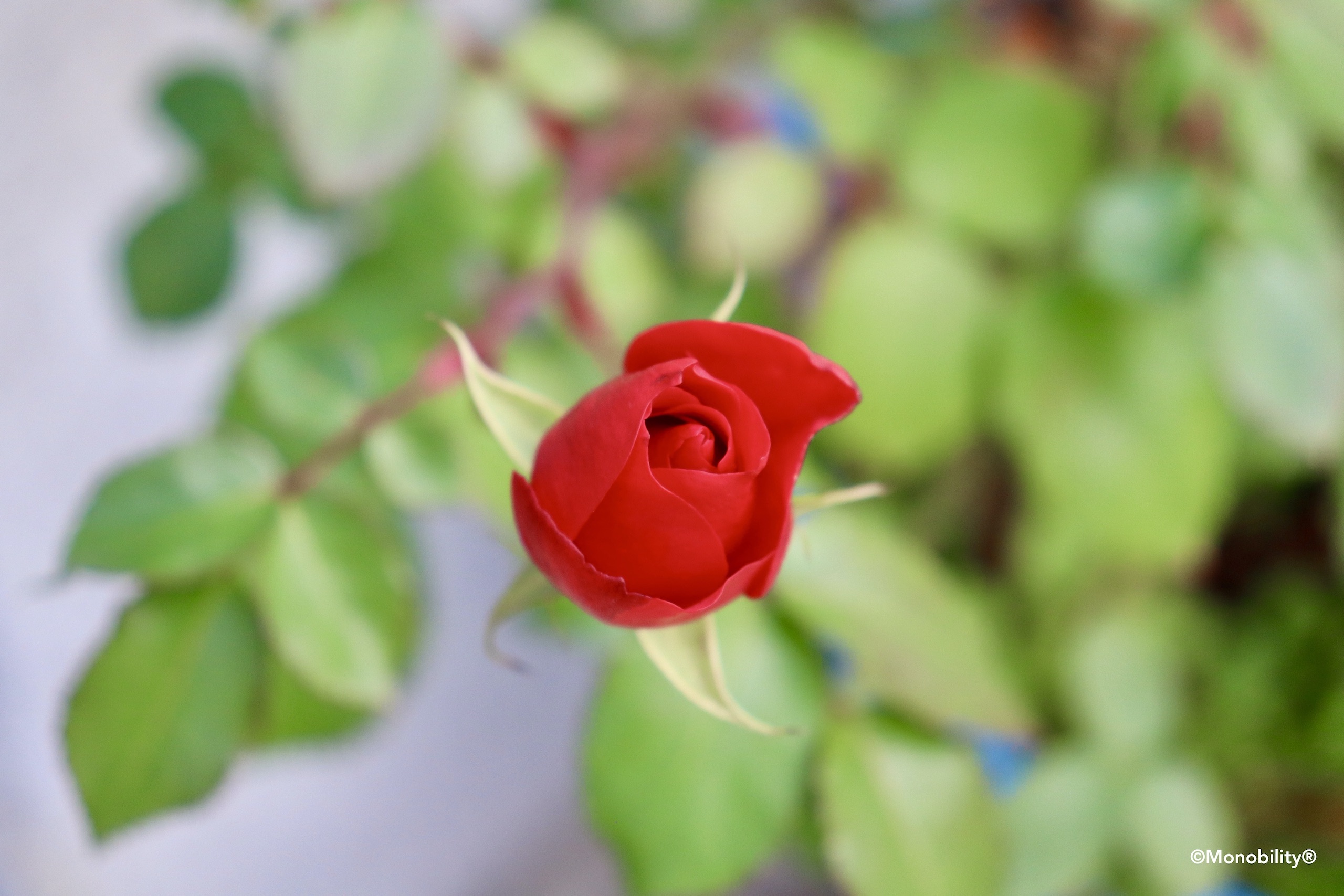그대: My Love. This is an elegant term used only in poems, songs, and other literature. That’s why you hear a lot of it in songs. If you say “그대~” to someone in your real daily life, it will make any Korean laugh (for the unexpected, surreal humor) 🙂
오빠: Only girlfriends call their boyfriend 오빠, which literally means “older brother.” So normally in a family, it is the way for a younger sister to call her brother. By extension, some girls use it at an initial stage of a romantic relationship, but the habit can linger on. Use it at your own risk: you will be considered as an easy woman to say the least, if you call someone you’ve just met “오빠~~” ^^
자기: Literally it means “Self,” as in “my better half” in English. Obviously it’s used in a deeper relationship, even after marriage.
…씨 : Here … is the first name, not the family name of your partner. This form is also used between colleagues and peers, without any romantic implication. Used by both woman and man, it has a respectful overtone since it is directly calling the name of your partner. It is also pretty much the only way to refer to your partner when you speak with your close friends and family.
여보 : Traditional Korean way of calling each other “Honey,” “Sweetheart,” or “Baby.” This one is reserved only for husband and wife after marriage, so never hurry to call your new girlfriend 여보 – It would definitely ruin everything, so proceed at your own risk.^^
당신: This one is also for a married or a long-term mature relationship. Unlike 여보, this one sometimes may sound less affectionate, since it is not only for couples, but also between friends or even strangers when they are involved in arguments.
…엄마, …아빠: Here … is the name of your child, usually your first-born child. Traditionally ordinary Korean married couples switch from …씨 to this form as soon as a child is born. …엄마 means “…’s Mom,” and …아빠 = “…’s Dad.” This is how typical Korean parents “lose” their own first name the moment they get a brand new baby.
야!: This is used when a Korean girl gets angry with her partner, just as children or close friends would do. Not recommended for a gentleman – Don’t say this to your Korean girlfriend or wife even if you’re angry. 야! sounds different from “Hey!” in English.
There are way more “terms of endearment” in Korean than the above examples, since couples often come up with personally “customized” nicknames for each other, like a secret code.
Happy Valentine’s Day, Everyone! ❤️

Check out our Facebook for much more:



